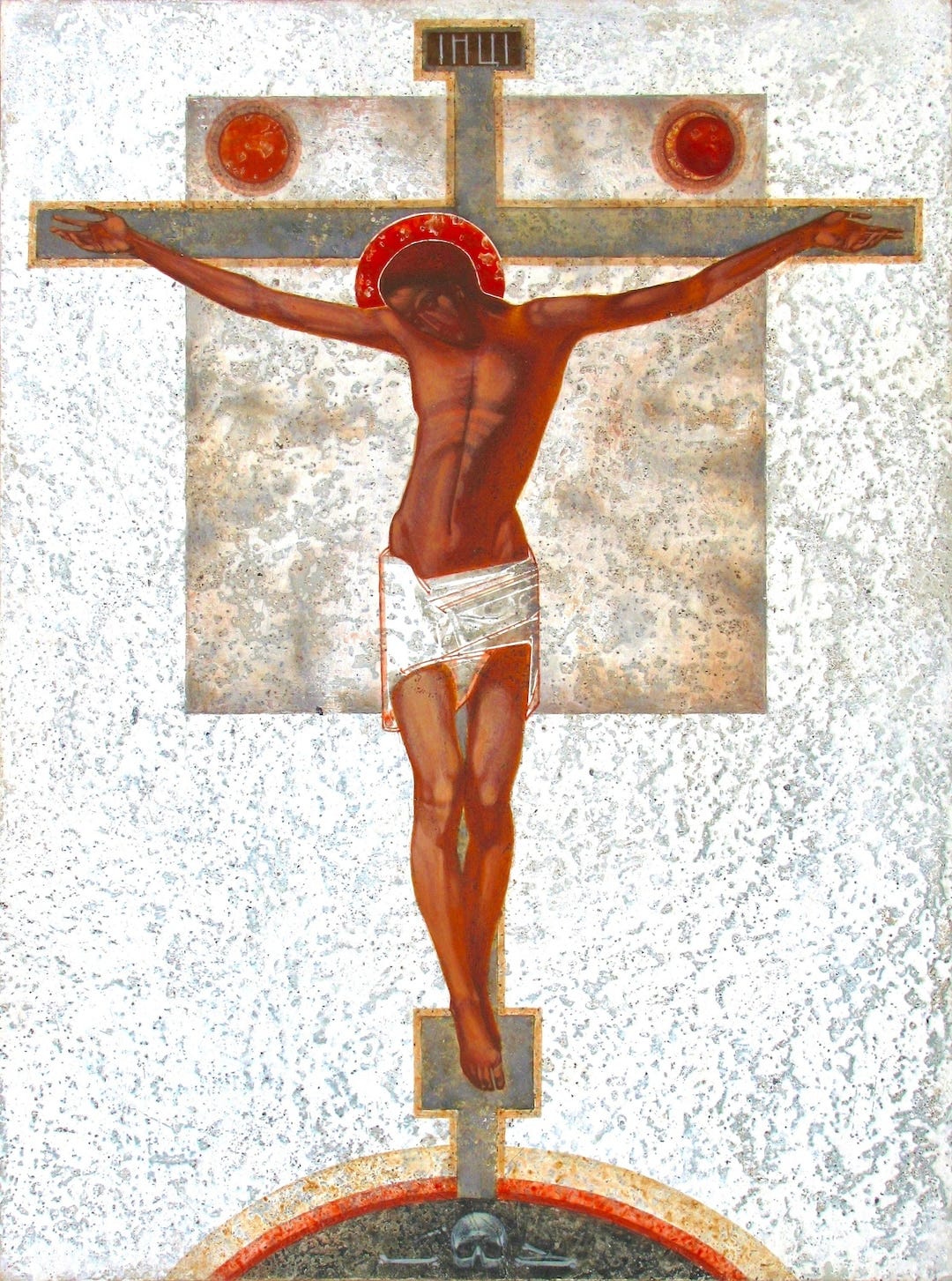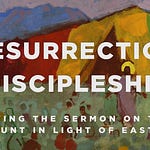I have fond childhood memories of traveling with my maternal grandfather. The road trips we took were never too flashy or extravagant. We did not load up his truck and go to places that required high-priced tickets for admission or significant planning for what we might do once we arrived. Our family had a long-running joke: "Granddad did not know where he was going, but he’d know once he got there.” With me in the front seat (breaking all of the child car safety rules we have today) and my grandmother in the backseat with a book (probably so that she’d have a nice distraction from the foolishness in the front seats), my grandfather would ask, “so which direction do you want to go?”
At every intersection – stop signs, forks in the road, traffic lights, or highway on and off ramps – he would ask, “Where do you want to go?”
Left? Right? Straight?
Through these trips, I learned that if you always say left or right, you will end up right back where you started. I learned how to read a map. I learned never to pass up a chance to stop at a restroom. I learned always to pack a snack.
Grandad never knew where we were going, but he always knew where we were when we got there. Throughout our travels, we never found ourselves lost or in the wrong location.
When we read Luke’s account of the angel Gabriel announcing to Mary that through her womb, the Savior of the World would take on human flesh, we can read the details provided by Luke and think that the angel Gabriel was lost.
In Galilee, in a town called Nazareth, the angel Gabriel found Mary and said, “Greetings, favored one! The Lord is with you… Do not be afraid, Mary, for you have found favor with God. And now, you will conceive in your womb and bear a son, and you will name him Jesus. He will be great, and will be called the Son of the Most High, and the Lord God will give to him the throne of his ancestor David.”[i]
Even before the angel Gabriel spoke these words to Mary, Luke tells us that Mary was “perplexed”[ii] by what the angel said.
“How can this be?”[iii]
“Wait, me?”
For something “good” to come from Nazareth was believed to be a stretch in the first century. As Jesus began his ministry, after being called by Jesus, Philip invited Nathaniel to come and see who “Moses in the law and also the prophets wrote, Jesus son of Joseph from Nazareth.”[iv] Nathaniel’s response is rich, “Can anything good come out of Nazareth?”[v]
Can anything good come out of Nazareth?
The angel Gabriel believed so.
God believed so.
Location matters. Ask any realtor or real estate investor.
A great house in the “wrong” neighborhood is less valuable than an OK house in the “right” neighborhood. The thing is, though, that the great house in the wrong neighborhood, while it may be less valuable, still holds great value or meaning to those who choose to call it their home.
Nazareth was a one-donkey town through which God had promised to restore the line of David. Yes, David, the giant-slaying king.
Despite his faults, the reign of King David was the “good ol’ days” for Israel. Under David, Israel was not occupied by the Romans. Under David, Israel was not forced into exile. There was relative peace and stability during David’s reign as God’s anointed leader.
The prophets assured generation after generation that the line of David would return and restore Israel to its former glory.
Mary was engaged to a man named Joseph. Joseph was a descendant of David, which meant that Jesus, through Mary and his adoption by Joseph, would continue the line of David. From what the gospels tell us, Joseph's credentials for being the dad to the Savior of the World ended with “of David.” Still, we can read the story and think that maybe the angel Gabriel was lost and, instead of finding a descendant of David in Jerusalem, settled for a soon-to-be descendant of David out in the sticks. Maybe Gabriel took a left instead of a right, didn’t know where they were going, and ended up in a one-donkey town.
Mary is also an unlikely character in the story. Unfortunately, women do not get a lot of airtime in our holy scriptures. But (and it’s a big but so you know it does not lie) we had better pay attention when women appear on the scene because something of grand significance is about to happen.
Elizabeth and the angel Gabriel.
Mary and the angel Gabriel.
Jesus and the woman at the well.
Jesus and Mary and Mary at the cross.
Mary and Mary found the tomb to be empty while the disciples hid.
Time and time again, women are chosen when God has big news to deliver.
As unlikely of a character in the nativity story as Mary is, her role is crucial because she will be the one through which God enters the world. Stepping beyond human expectation, God is at work through Mary to bring forth the promised heir of David.
Mary is the one through which the incarnation takes place. Mary is the one who nursed the Son of Man, the Savior of the World. Mary is the one who would have recited the psalms to Jesus as she rocked him to sleep. Mary is the one who pushed Jesus to perform the first recorded sign of who he is when he was at a wedding in Cana. Mary is the one who remained faithful to her son’s ministry as the male disciples became scared, denied knowing Jesus, and hid after her boy was nailed to the cross.
As unlikely of a character in the nativity story as Mary is, we do not have a Savior without Mary.
While Mary certainly, and for good reason, receives a great deal of attention during Advent, our scriptures are first and foremost about what God has done and is doing. Mary, through her faithfulness, “Here am I, the servant of the Lord; let it be with me according to your word,”[vi] is the means by which God took on human flesh.
God took on human flesh in what many considered to be the wrong place.
The wrong geographic location and the wrong family.
The Savior born in Nazareth made a habit of being in the wrong place and with the wrong people.
He traveled through Samaria – the land of the Samaritans. What you need to know is that first-century Jews would go out of their way to avoid Samaria, yet Jesus did not allow the wrong place or the wrong people to be an obstacle to his ministry.
Jesus regularly spent time with the wrong people. One of the charges against him before he was nailed to the cross was that he was a friend of tax collectors and prostitutes, meaning that he spent time in the wrong places with the wrong company.
Ultimately, Jesus would end up in the wrong location at what appeared to be the end of his ministry as the Savior of the World. After a sham of a trial and, at best, circumstantial evidence, Jesus was nailed on the center of three crosses, with thieves flanking him.
The Savior of the World, endowed with all of the power of Heaven, nailed to a tree like a thief. Yet, what we see as the wrong location for our Savior was the exact spot where God would declare to the world that the powers of Sin and Death did not, do not, and will not hold the last word.
At a particular time and place, in a manner and through people that supersedes what we think to be the normal course of historical human events, God acted, begetting a Son who comes as the fulfillment of God’s promise for the salvation of humanity.
Rev. Will Willimon, in his book Heaven and Earth: Advent and the Incarnation, wrote, “If God can show up in (these two otherwise) unknown women God can show up anywhere. Even to you, even to me, even here, even now.”[vii] That’s Incarnation.
Was the angel Gabriel lost? At each intersection between Heaven and Nazareth did Gabriel ask, “Where do I want to go?”
Left? Right? Straight?
“Can anything good come out of Nazareth?”[viii]
From the world’s point of view? Perhaps no. But for God? You bet your donkey it can!
[i] Luke 1:28, 30-31
[ii] Luke 1:29
[iii] Luke 1:34
[iv] John 1:45
[v] John 1:46
[vi] Luke 1:38
[vii] Willimon, Will. Heaven and Earth: Advent and the Incarnation. Abingdon Press. 2023. Page 102.
[viii] John 1:46


















Share this post